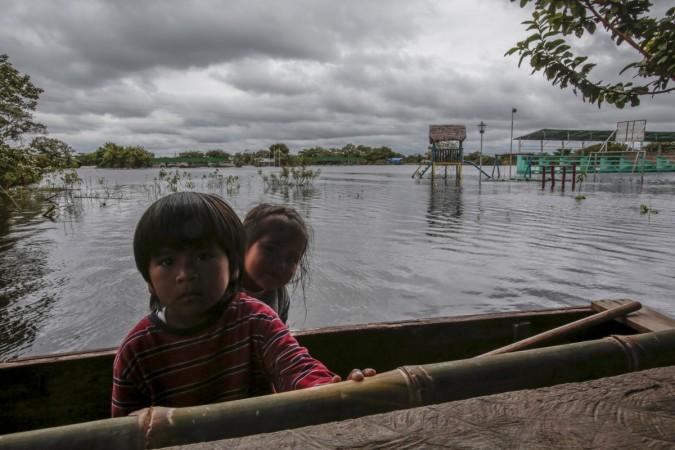
In a measure to eradicate poverty, Bolivia has lowered the age for children to work to 10 years, with a condition that they should be attending schools as well.
The country has brought out a law in this regard, allowing schoolchildren of 10 and above to work.
As per the norms of International Labour Organistion (ILO), children below 15 years age should not be allowed to work. But in developing countries, ILO allows 14 years as the minimum working age.
Bolivia is one of the poorest nations of South America. Vice President Alvaro Garcia Linera stated that the new legislation reflects the needs of Bolivia. The newly ratified law also allows 12 year olds to get employed by labour contractors and work for others. For this, the contractors/employers should take the authorisation from the children's parents.
At the same time, the country has also passed stern and harsh punishments for any violence against children. The newly brought out legal act has set a sentence of 30 years in jail for child homicide, the BBC reported.
Bolivia's new measure, which has been okayed by the Congress earlier this month, was signed into a legal act by the country's Vice President, when President Evo Morales was away in Brazil.
"President Evo [Morales] intervened to make sure we found a balance between the reality and the law, between rights and international treaties," Garcia said.
More than five lakh children in the country are already working to support their families, says Unicef. In Bolivian cities like La Paz, many children work by cleaning shoes and selling food in stalls. However, some children of Bolivia face extreme conditions in mines and agriculture fields.
Bolivia's socialist government, headed by Morales, believes that the new law will help the country to wipe out poverty.
"It would have been easier to pass a law in line with international conventions, but it would not be enforced because Bolivia's reality has other needs and characteristics," Garcia pointed out.
Meanwhile, the ILO stated that it is studying Bolivia's new legislation to see whether it breaches international regulating norms on child labour.
During the 1980s, the country faced severe recession and lost 21,000 jobs, inflation was rampant and the Bolivian currency went into crisis.
Morales' administration now focuses on poverty reduction. Having come from an indigenous population of the country, Morales wants to combat the influence of the US and transnational corporations in Bolivia. In the process, he has brought the energy industry under government control.
The country has regional disparities in wealth distribution and most Bolivians are farmers, miners, artisans and small traders with low-incomes.














